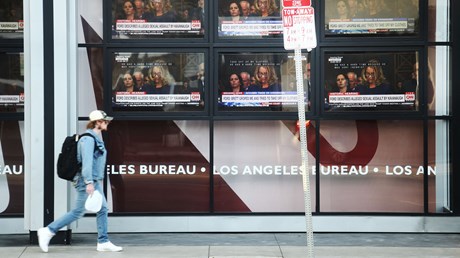Both religion and politics have complicated it. How do we start fresh?

It was one of the ugliest presidential elections in US history. On one side was a candidate who was smeared in the press as too sensitive to be a man and too brutish to be a woman. Fake news stories, planted by opposing forces, claimed the candidate supported a march toward war. Of course, it was hard to know what to believe; this same candidate had previously used every means possible to limit press freedoms and keep important information away from public eyes.
On the other side was a man widely rumored to have abused his power to sexually assault at least one woman young enough to be his daughter, a rumor his opponent happily exploited for personal political gain. It was claimed that if this man were elected, “murder, robbery, rape, adultery, and incest will be openly taught and practiced.”
It was the election of 1800. The candidates: John Adams and Thomas Jefferson.
Fake news and consequent distrust of the media are nothing new. Politicians and power brokers have for centuries used the press and the gossip grapevine to manipulate the public. What is new is the speed and volume of information constantly bombarding our senses from a million different sources. It is easy to feel overwhelmed, and consequently to retreat to spaces filled with people who think and feel like we do. Media scholars refer to this as an “echo chamber,” where our existing opinions are reinforced and we are free from the discomfort of opposing viewpoints.
In our digital world of viral content and up-to-the-second breaking news, the stakes are higher, to be sure. But as Christians, we should see this as a call for greater discernment, not an excuse to disengage from the conversation or, conversely, keep adding fuel to the fire. …
Source: Christianity Today Most Read